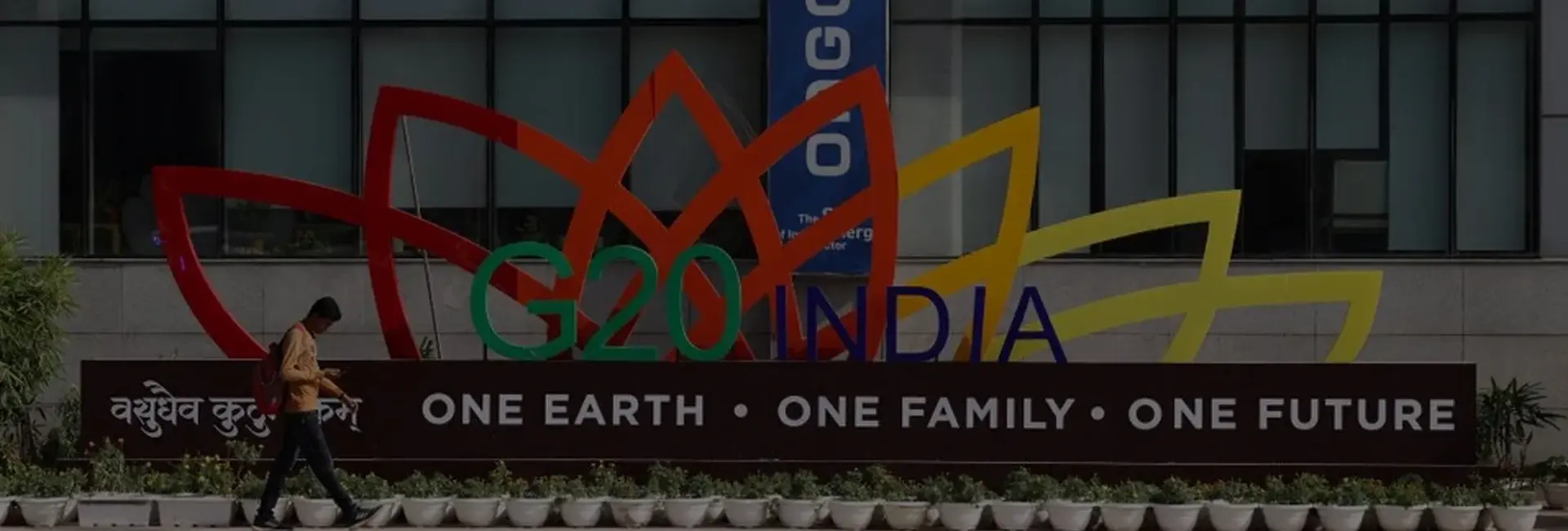In this year’s G20 New Delhi Summit, topics including a rift between Canada and India may have an impact on global mobility. Additionally, there is a U.S.-backed transport corridor connecting the Middle East and South Asia, as well as climate change.
In New Delhi, India showcased its power and influence at this year’s G20 summit. In the wake of a new economic system that replaces the old British one, it was a chance to show the world how far the country has progressed as the world’s fifth-largest economy. In total, the group of 19 countries plus the European Union accounts for roughly 85% of global GDP, 75% of global trade, and approximately two-thirds of the world’s population. As the first G20 Summit to include the 55-member African Union, the Global South had a greater voice.
This year’s G20 Summit discussed a rift between India and Canada, the U.S.-backed transport corridor linking the Middle East and South Asia, and climate change. In the coming years, all three topics may affect industry standards in the global mobility industry.
The change in climate
As a result of this year’s G20 climate change discussions, incremental change has been set in motion. Despite not amending existing policies or targets, the G20 agreed to triple renewable energy capacity worldwide by 2030. Also, they agreed that coal must be phased out globally to meet current global warming goals, but no specific plans were made. COP28 should result in more detailed plans and goal amendments, however. The event will take place in the United Arab Emirates this November and December.
Corner for New Traders
Among the most important announcements from the G20 Summit were the signing of a Memorandum of Understanding about the new India-Middle East-Europe Economic Corridor (IMEC) between the United States, Saudi Arabia, India, the European Union, France, Germany, and Italy. Soon, the first corridor blueprints will be available.
IMEC will consist of two separate corridors, the first connecting India to the Arabian Gulf and the second connecting the Arabian Gulf to Europe. As part of the IMEC, a railway will connect the entire corridor so goods and services can transit to, from, and between India, the UAE, Saudi Arabia, Jordan, and Europe via a reliable and cost-effective cross-border ship-to-rail transit network that augments existing maritime and road transport routes. ”
From visa processing services to shipping vendors, this trade corner will have a significant impact on the global mobility industry. At the digital G20 Summit on 30 November, the first blueprints are expected to be unveiled.
There is a chill between India and Canada that affects mobility
Even though India is hosting the G20 under the friendly theme “Vasudhaiva Kutumbakam,” which means “One Earth – One Family – One Future,” tensions have begun to be felt with a particular nation: Canada. Prime Minister Narendra Modi declined to meet with Canadian Prime Minister Justin Trudeau in a formal bilateral meeting. It has been perceived as a snub. According to reports, Modi criticised Canada’s handling of recent protests by Sikh separatists during the G20 Summit. Canada has the second-largest Sikh population after India. A Canada-India trade mission was postponed shortly after the summit.
As tensions escalated following the summit, Trudeau claimed that Indian government agents were responsible for the June killing of Hardeep Singh Nijjar, a Canadian Sikh separatist. The Indian government denied the claims and suspended visa processing services, including employment, student, and tourist visas. India expelled 41 of the 62 Canadian diplomats living in India on 2 October. The head of the Indian security service was also expelled from Canada.
It is important from a mobility standpoint that India and Canada have a relationship. 80,000 Canadians visited India alone in 2021, making them the fourth-largest tourist group. Approximately 1.4 million Indians live in Canada, making up 40% of the country’s international student population. As a result of suspended trade talks and visa services, global mobility is disrupted, affecting business travel, student travel, and employees of Canadian and Indian IT firms, including Bombardier, TCS, and Infosys. The situation should be closely monitored by mobility professionals.














